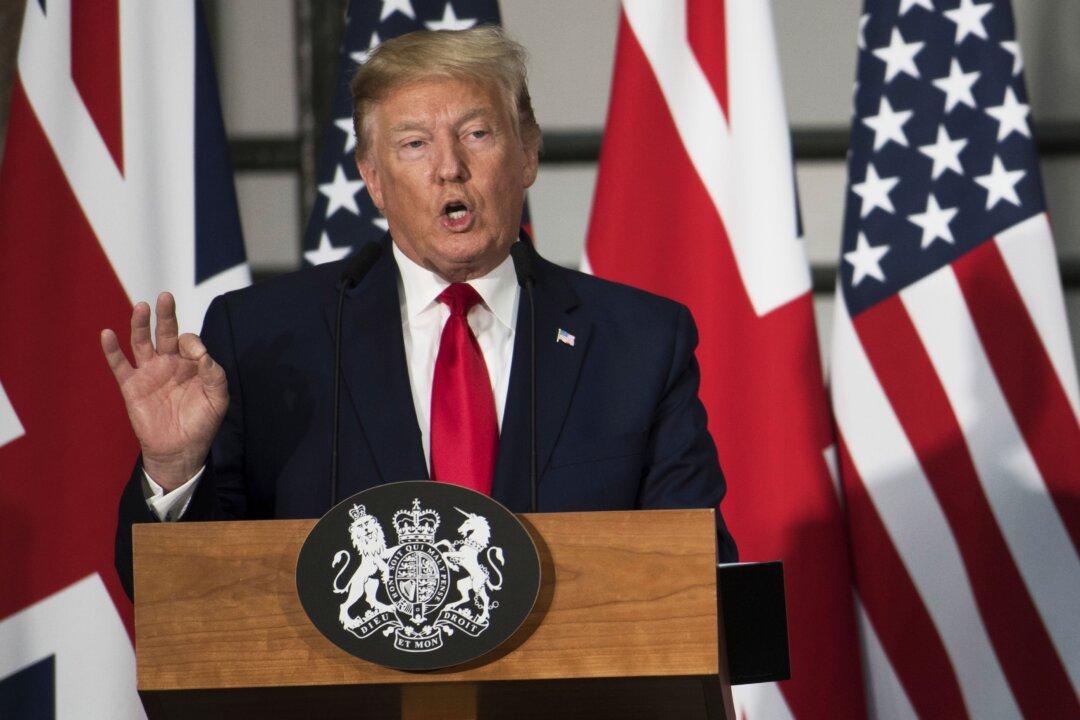President Donald Trump dismissed a report that some Republican lawmakers are discussing an action to block him from imposing tariffs on Mexican imports.
“I don’t think they will do that. I think if they do, it’s foolish,” he said during a joint press conference with UK Prime Minister Theresa May in London on June 4.





